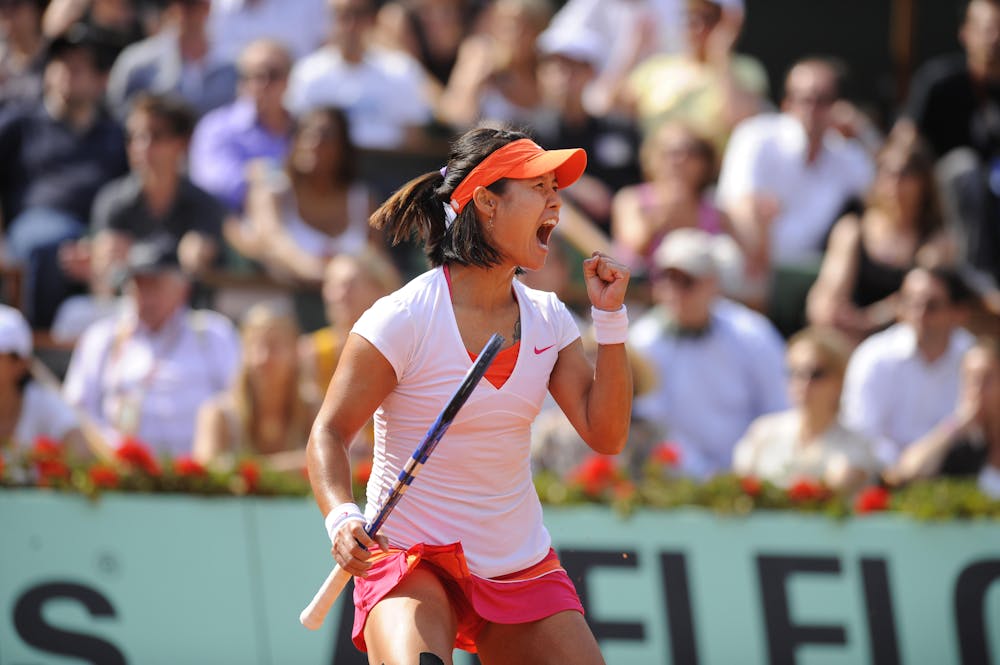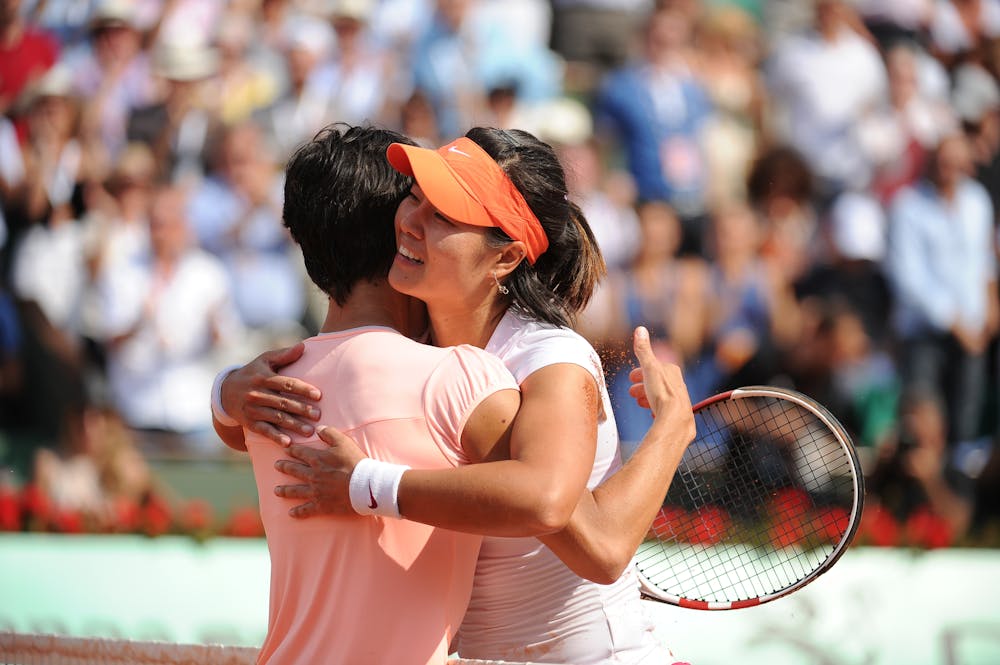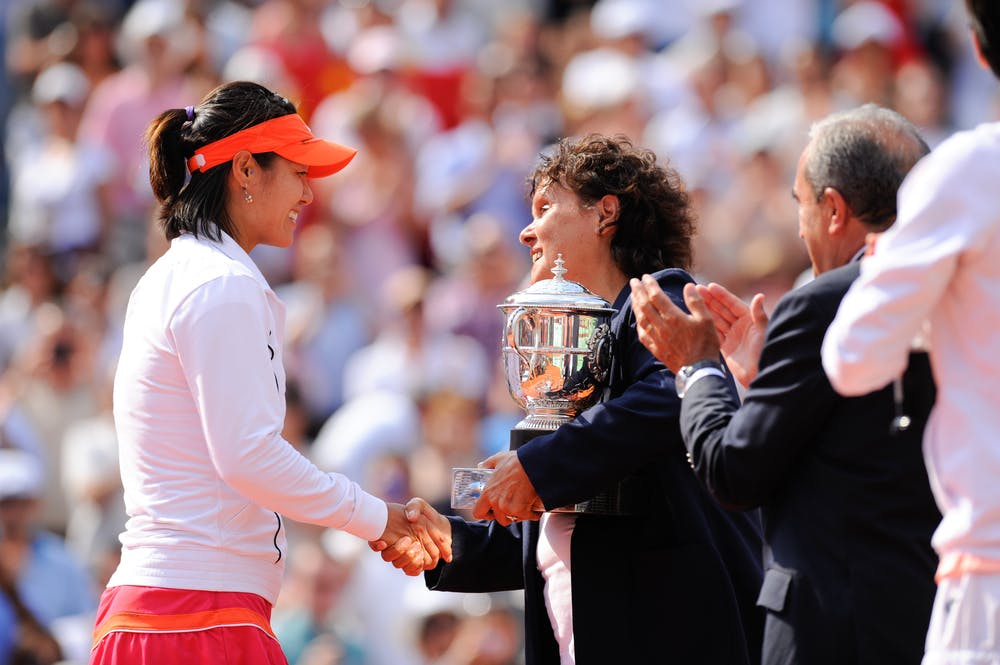"She just, I don't know, she enraptured me, I was so, so fascinated."
Li was one of a kind, and a beacon of light for younger generations who now hope to trace her footsteps on tour.
“The way she played and how she was, she always looked like she was having fun on the court, which sometimes you don't really see anymore,” American Ann Li, who is Chinese American said last week in Paris.
“She was a great player and a great person too, so she's inspired me like that. Just seeing her on TV when I was younger I thought it was really cool. Because you didn't see many Asian players – now a lot more are coming up, which is good."
One small step for Li Na, one giant leap for tennis. Like Neil Armstrong’s famous moonwalk in 1969, Li’s footprints in the terre battue represent a seachange for the sport – a moment of endless possibility.
 ROLAND-GARROS
18 May - 7 June 2026
ROLAND-GARROS
18 May - 7 June 2026





